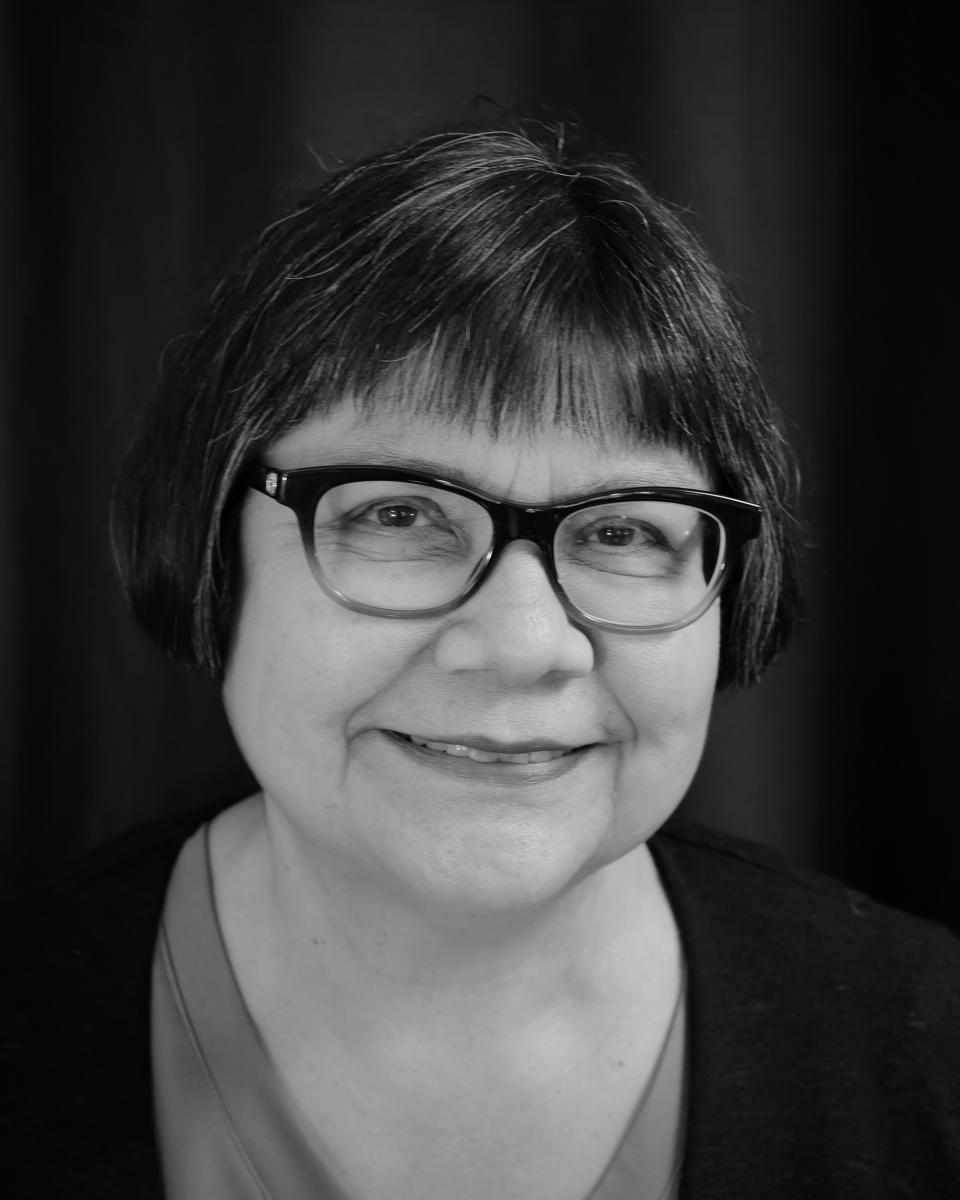December 4, 2023
Started in 2018, the Indigenous Artist Spotlight series is intended to foster greater awareness and understanding of the strength and diversity of Indigenous art available in Ontario and beyond. Find all of our past Spotlight interviews here. This month, we spoke with Indigenous pianist and composer Beverley McKiver.
 Beverley McKiver is an Anishinaabe artistic music creator. A pianist since childhood, in recent years she has poured her passion and energy into contemporary classical composition. All of her work, from pieces for solo piano, SATB choir, small ensemble, and art song cycles, draws from the past that she had; the past that she is recouping, as a 60s scoop child; and the present that she is exploring. Beverley’s musical influences include a wide gamut of classical, jazz, liturgical, and Indigenous musicians and composers. In her work and in her life, she aspires to honour nature, while recalling both the joys and tribulations of her ancestors. Beverley is devoted to creative work, and thrives on collaboration with Indigenous and non-Indigenous creators as well as the companionship of cherished friends who walk with her.
Beverley McKiver is an Anishinaabe artistic music creator. A pianist since childhood, in recent years she has poured her passion and energy into contemporary classical composition. All of her work, from pieces for solo piano, SATB choir, small ensemble, and art song cycles, draws from the past that she had; the past that she is recouping, as a 60s scoop child; and the present that she is exploring. Beverley’s musical influences include a wide gamut of classical, jazz, liturgical, and Indigenous musicians and composers. In her work and in her life, she aspires to honour nature, while recalling both the joys and tribulations of her ancestors. Beverley is devoted to creative work, and thrives on collaboration with Indigenous and non-Indigenous creators as well as the companionship of cherished friends who walk with her.
Can you tell us a little bit about yourself and your work?
I’ve been playing piano since I was around eight years old and music has always been an important part of my life. I have always played for choirs, church services, instrumentalists and singers. I’ve studied with teachers privately and in workshops. I started composing around 2014 and have been fortunate to have some wonderful mentors and teachers. Each new composition is a challenge and learning experience. My body of work currently has an environmental and land-based focus.
You started your working life being a business analyst for over 30 years. Was there a particular moment or something that inspired you to return to school and pursue music full time?
In 2014 I got laid off and I saw that event as an opportunity to turn my attention to music and become a self-employed musician. I enrolled in a piano pedagogy certificate program at University of Ottawa, began teaching piano, actively sought opportunities as a collaborative pianist and worked on upgrading my piano skills by studying for theory and piano exams.
Your piece Boozhoo Manoomin musically explores manoomin, the sacred food of the Anishinabeg, and its importance to the Anishinabeg. Could you tell us a bit about what inspired you to create this piece and its significance to you?
I have had a lifelong love of manoomin (wild rice) and an intense curiosity about its harvesting and usage by the Anishinaabeg. When I was beginning to think about composing, it was a subject I wanted to explore, and it led to the creation of a nine-part suitefor flute, voice, piano, viola/cello.
Your suite Canadian Floral Emblems, inspired by the floral emblems of the ten provinces and three territories, was presented digitally in a series of concerts in late summer through fall of 2020. Could you expand on your process in creating these pieces and your experience presenting them digitally? Any obstacles you may have encountered or benefits to the digital platform?
I applied for a Canada Council Digital Originals grant which encouraged the creation of artistic works that could be presented online as a result of the pandemic. My pitch was to write a set of piano compositions for each provincial and territorial floral emblem and present them in a series of online concerts. Once I was awarded the grant, I had to follow through on a fairly aggressive schedule and complete the compositions and prepare them for biweekly concerts. I’d had some experience with presenting some livestream concerts for friends and my church community since the beginning of the pandemic. I got some advice from a friend who was doing similar concerts and purchased a good mic and used my iPhone to record the concerts. Each concert was a challenge and a learning experience as I had to be my own tech crew as well as perform. The quality of the recordings were uneven, but serve as a testament to my project. I recorded my final concert recap of all the pieces in a studio and was very grateful for the services of an excellent sound engineer.
What is one piece of advice you would give to emerging Indigenous musicians?
Your voice is needed. You will grow as a composer the more you create music.
Is there anything else that you would like to share? Do you have any upcoming work that we should look out for?
I wish I had started years ago, but it’s never too late to follow your dreams. I am very grateful for the support of my friends, family and arts organizations.
Keep up with Beverley McKiver
- Website: https://beverleymckiver.com/
- Spotify: https://open.spotify.com/artist/2DSqTXf0h9hj9RsUL3qSL6?si=Q2rxuCLSQIyh9AY6Gm1CqA
- Apple Music: https://music.apple.com/ca/artist/beverley-mckiver/1523858845
- YouTube: https://www.youtube.com/channel/UCpxWrKqLMVfSvWAkx16EowA
- SoundCloud: https://soundcloud.com/beverley-mckiver
- Instagram: @bev.piano
- Facebook: @bevpiano
Photograph of Beverley McKiver courtesy of Denis Redmond

